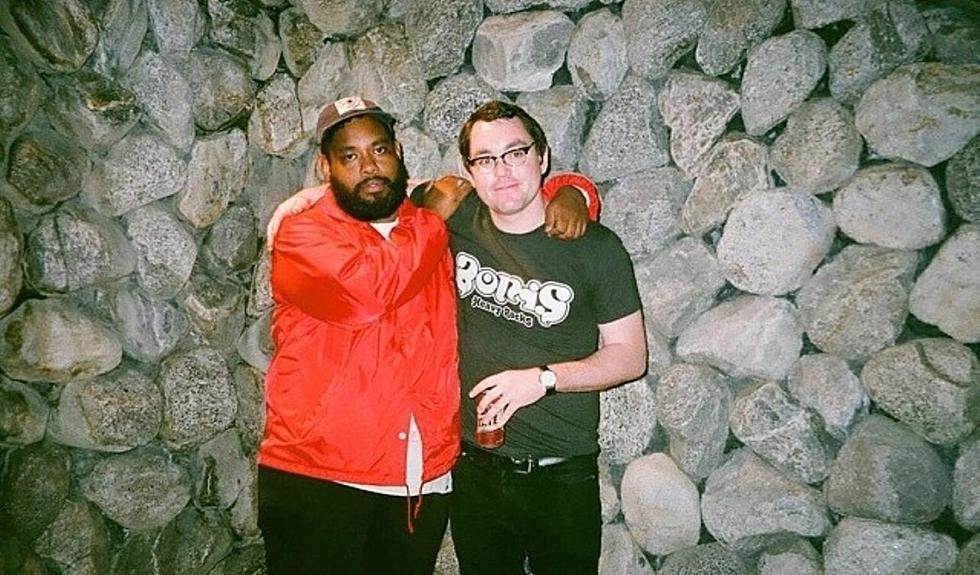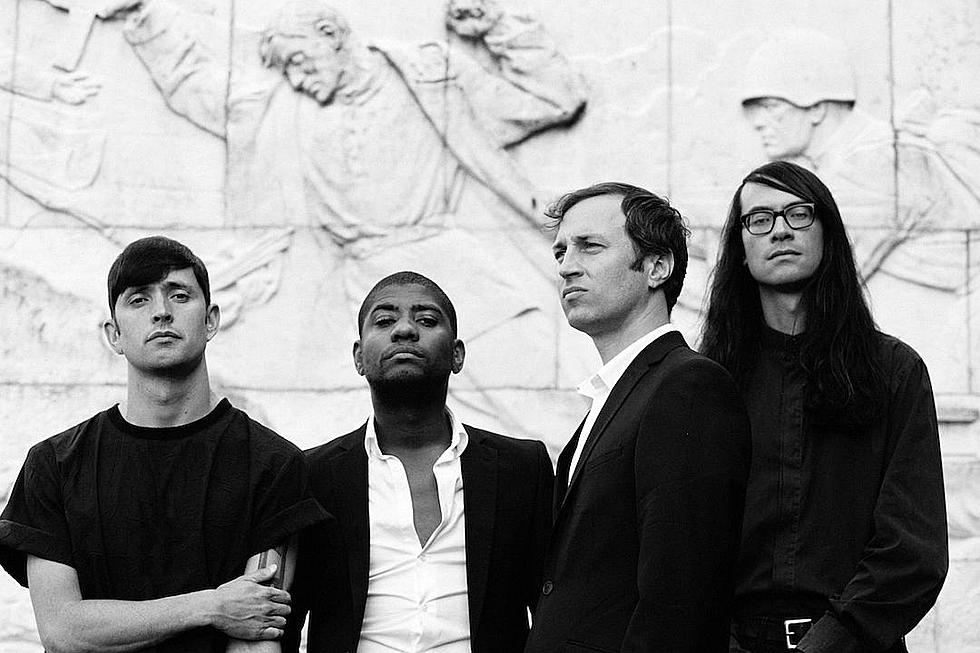
Metal Is Not the Worst, You Just Don’t Get It
David Hall means well. It’s hard to write that without sounding patronizing, which is the last thing I want to do. For the unfamiliar, take a couple minutes to read last week’s “Metal Is the Fucking Worst” op-ed. Considering the headline and only the headline (David’s verbatim suggestion), this is an extremely hard-line take, guaranteed to elicit frothing responses from, hell, not both sides of the aisle so much as the whole theater. (As evidenced by our editor-in-chief’s preface, CLRVYNT is firmly on Team Fuck That Noise.) Go deeper into the text, however, and there’s no shortage of impassioned, intelligent arguments that more of us need to echo — every day — in support of the good guys in the struggle that is art vs. commerce.
This is by no means a comprehensive rebuttal. I would hope the vast majority of us want to see artists succeed based on merit, not manufactured hype. These days, it (unfortunately) takes aggressive rhetoric to drive home the finer points. So, while “Metal Is the Fucking Worst” in and of itself may come off as sensationalistic, I can’t disagree with a conceit like, “The artist deserves fair compensation from anything they make and sell, but anything the artist makes TO sell is not art. It’s content. Branded content.”
Has metal as a whole has devolved to the point of warranting the general broadside? I worked at Decibel for just over a decade before signing up at CLRVYNT. The people behind both are true believers, lifers. To commit to this shit, you have to suffer through some rough, rough trends. For extreme music, the turn of the century was infamously not pretty. It was, perhaps, even the nadir — but far from the end. The aforementioned voices are well aware of that. They excel at telling those stories and providing valuable historical context. I wish I were that prescient and thoughtful. I am more true believer than lifer, a point that will be made abundantly clear in short order. I simply want to offer counterpoints to two of David’s ideas.
1) You know how Nirvana’s Nevermind “invented” grunge, even though those of us who were there can clearly remember an organic scene called "indie" or "alternative" that existed for years before Kurt and co., appropriated it and sold it out? People at Dinosaur Jr shows weren’t listening to or buying Nirvana. People at Pixies and Meat Puppets shows weren’t listening to or buying Nirvana. And yet suddenly Nirvana dropped Nevermind and every asshole at the mall was wearing a flannel shirt.
I’m old enough to have cultivated a similar sense of (best case) protectiveness / (worst case) elitism in my aesthetic leanings. I’m also old enough to be straight with you: I was one of those assholes at the mall. At age 15, granted, but yeah, that was me. I grew up in the ’burbs in northeast Ohio, practically a different planet from the legitimate coolness that was going on in Cleveland — from Pere Ubu to Integrity — and Nirvana mattered. The liner notes to Incesticide ("If any of you in any way hate homosexuals, people of different color, or women, please do this one favor for us — leave us the fuck alone! Don't come to our shows and don't buy our records."): that mattered. Unplugged exposing dipshits like me to the Meat Puppets, Lead Belly and even Bowie: that mattered. I don’t regret buying that “Sliver” shirt and feeling just a little less beat-up-able. Tell me Nirvana were brutally overrated — fine. Tell me the “Corporate Magazines Still Suck” Rolling Stone cover was disingenuous bullshit — right there with you. But “appropriated [grunge, indie, alternative, etc.] and sold it out” is a reach. Without that band, I wouldn’t have gotten into my lifelong favorite “next Nirvana,” Helmet, and by extension the AmRep catalog (something David admirably appreciates and supports). Am I playing the chickenshit they-were-a-gateway-to-better-bands card? A little. It’s complicated. But this is about assumption of intent, and I simply take umbrage with the notion of Kurt Cobain as some mustache-twirling Machiavellian figure complicit in co-opting art.
Point two, then I’ll STFU:
2) Like Sabbath’s Sabbath, Sunbather was a signal post. This post said, "We are blackgaze; we are marking this territory for our own; there will never be a better blackgaze album than Sunbather; we are taking a stand, planting our feet firmly and announcing that from this point forward, WE are the progenitors of a new scene."
Both before and after this statement, David conveys a strong distaste for “blackgaze.” I get it. Ferris said, “Life moves at you pretty fast,” and Douglas Coupland had a lot to add about living in an accelerated culture, and that was (respectively) in 1986 and 1991, so the four-year swing from Sunbather to Astronoid and the, uh, interesting new Vattnet song you'll hear soon is pretty dizzying. Mind you, it took 30 years to get from Hellhammer's first demo to Sunbather, but it probably felt a lot faster for a lot of people. It’s not hard to see why purist black metal advocates are overprotective.
Aesthetic merits of this (still-developing) subgenre aside, I take issue with the above statement in that it’s an assumption. Granted, that godawful Ray-Ban featurette does not help their cause. Advertorial is gross. (It’s also a sad fact of life for bands and music outlets alike.) I just don’t think Deafheaven made a grandiose statement of intent by simply writing a record. If somebody can prove that they willfully concocted a nefarious master plan of Leading a Subgenre Into Tomorrow and Beyond, okay, kinda lame. But even if that were the case, that’s just ambition. Artists have a tendency to do stuff like that. Nothing wrong with it. They wrote music they liked, the world reacted accordingly, and the machine took it from there. Instead of hemming and hawing over that, I urge you to focus on David’s last paragraph. That’s the real red meat. The points about co-opting and commercialization are sound. I'm just not sure if Nirvana and Deafheaven are the bad guys.
As our EIC wrote in the introductory disclaimer, "there is a world of metal out there dying to be discovered." I find it hard to believe that David — a prominent figure in this scene for a very long time — is entirely serious about Deafheaven being the death knell of a constantly evolving 40-plus-year-old genre; he thrives as an agitator. If he is, well, that’s cool, too. Let’s just continue to expand the argument.
More From CLRVYNT









